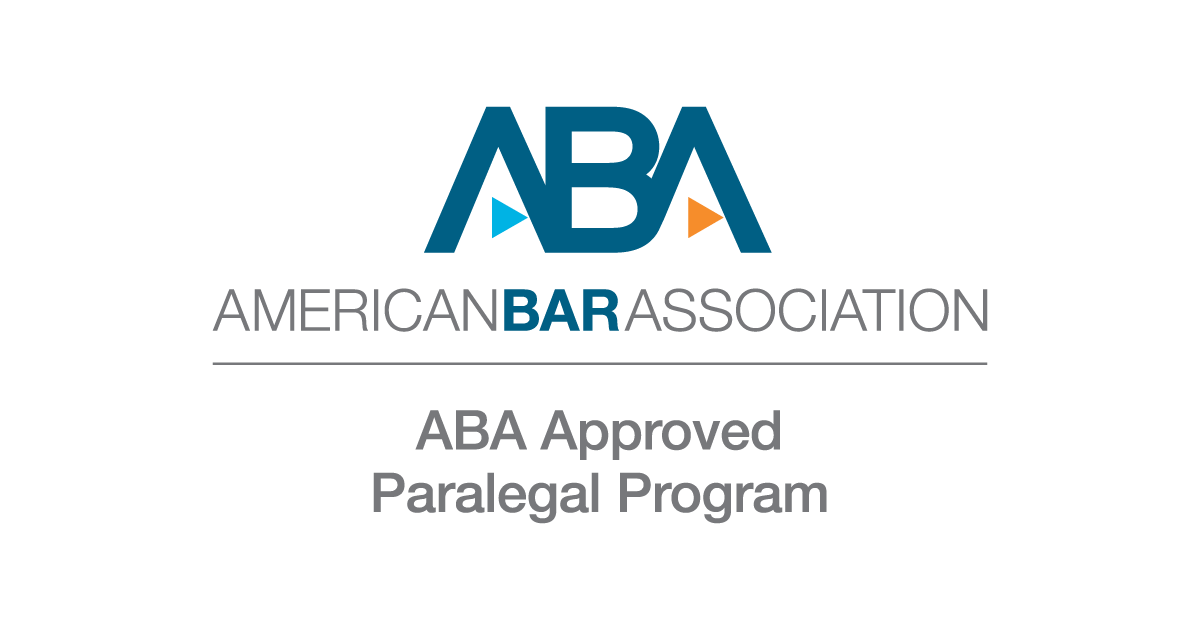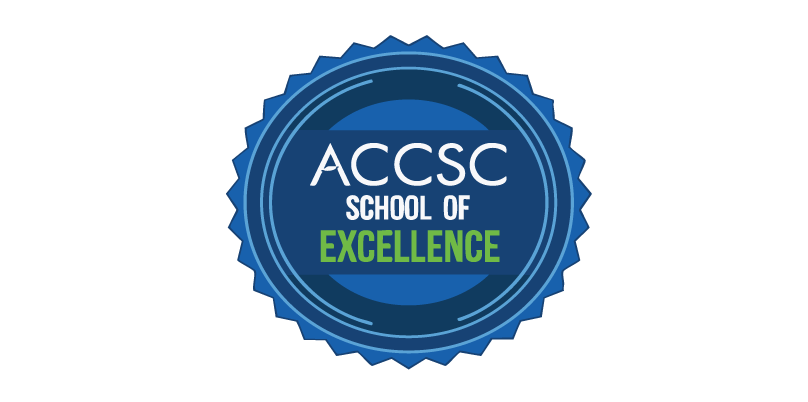[Updated March 30, 2022]
The first step to becoming a paralegal is to get your degree or certificate from an accredited institution. Accreditation gives merit to any credential.
What is accreditation? The goal of accreditation is to ensure that institutions of higher education meet acceptable levels of quality. Accreditation in the United States involves non-governmental entities (accrediting organizations) as well as federal and state government agencies (these three entities are formally known as the Triad). Accreditation’s quality assurance function is one of the three main elements of oversight governing the Higher Education Act’s (HEA’s) federal student aid programs. In order for students to receive federal student aid from the U.S. Department of Education (Department) for postsecondary study, the institution must be accredited by a “nationally recognized” accrediting agency.1
Further, accreditation seeks to assess and enhance the educational quality of an institution, ensure consistency in institutional operations, promote self-evaluation and institutional improvement, and provide for public accountability within a peer-review framework.2 For these reasons quality educational institutions consider accreditation to be essential and very few universities, colleges, or schools exist without securing and maintaining accreditation from one or more of the accrediting agencies recognized by the Department of Education.
As stated by ACCSC, one of the accreditors of Center for Advanced Legal Studies, the accreditation process, “assesses the effectiveness of an institution’s educational programs by evaluating the infrastructure that supports the delivery of programs as well as educational outcomes, including the rates of student achievement such as student graduation and graduate employment.”3
Accreditation is important because it:
- Helps determine if an institution meets or exceeds minimum standards of quality.
- Helps students determine acceptable institutions for enrollment.
- Assist institutions in determining the acceptability of transfer credits.
- Helps employers determine the validity of programs of study and whether a graduate is qualified.
- Employers often require evidence that applicants have received a degree from an accredited school or program.
- Helps employers determine eligibility for employee tuition reimbursement programs.
- Enables graduates to sit for certification examinations.
- Involves staff, faculty, students, graduates, and advisory boards in institutional evaluation and planning.
- Creates goals for institutional self-improvement.
- Provides a self-regulatory alternative for state oversight functions.
- Provides a basis for determining eligibility for federal student assistance.
Students must attend an accredited institution to apply for federal grants or loans.
Does the American Bar Association accredit paralegal programs? The ABA is not authorized to accredit paralegal programs. The ABA serves as an accrediting agency for law schools only.4 This distinction has been a source of confusion for many years as some falsely believe they must attend a paralegal program  that is ‘ABA Accredited’. Most states require attorneys to attend an ABA-accredited law school to sit for the state bar exam to become licensed to practice law in that state. There is no such requirement for paralegals. The ABA does approve paralegal programs and states that “programs are offered by two-year community colleges, four-year colleges and universities, and business and proprietary schools, some of which are freestanding institutions devoted solely to providing this type of training. Since entry into the paralegal field is open to a wide range of individuals with diverse educational backgrounds and previous work experiences, the length of programs and their admission requirements vary considerably from one institution to another.” 5 Consequently, it is important for those seeking a paralegal program to weigh other important factors such as accreditation status, program length, curriculum, faculty, facilities, history, student services, Title IV financial assistance, job placement assistance, and the reputation the paralegal program has in the community and among employers.
that is ‘ABA Accredited’. Most states require attorneys to attend an ABA-accredited law school to sit for the state bar exam to become licensed to practice law in that state. There is no such requirement for paralegals. The ABA does approve paralegal programs and states that “programs are offered by two-year community colleges, four-year colleges and universities, and business and proprietary schools, some of which are freestanding institutions devoted solely to providing this type of training. Since entry into the paralegal field is open to a wide range of individuals with diverse educational backgrounds and previous work experiences, the length of programs and their admission requirements vary considerably from one institution to another.” 5 Consequently, it is important for those seeking a paralegal program to weigh other important factors such as accreditation status, program length, curriculum, faculty, facilities, history, student services, Title IV financial assistance, job placement assistance, and the reputation the paralegal program has in the community and among employers.
Is paralegal studies continuing education? Adding to this confusion is the proliferation of paralegal programs housed in the continuing education departments of many otherwise prestigious colleges and universities. While the college or university may be accredited and well respected, the programs contained within the continuing education department often are not. It is good to remember that just because the program is located on the same campus doesn’t mean that it is being offered by the same institution or is required to meet the same standards. Be sure to ask if the program is accredited. Accredited paralegal programs are often required to report annually to their accreditors and state authorities and disclose important consumer protection information such as graduation rates and employment rates. If you find it difficult to locate this information for a prospective program on its website it is a good sign that the program isn’t accredited and only provides ‘continuing education credit’ which isn’t held to the same high standard as full college credit offered by the college or university.
What about short-term and weekend programs? Of similar concern and as addressed by the American Association of Paralegal Education (AAfPE) in its position statement, “in recent years there has been a proliferation of short-term entry-level paralegal training programs of very limited duration, some with as few as 125 clock hours (which is less than nine semester credit hours). These programs do a fundamental disservice to the legal profession by creating unrealistic expectations in both employers and students that a quality paralegal education has been delivered when such may not be the case.6 Before enrolling in a paralegal program, it is wise to ask how many semester credit hours it contains. If the paralegal program contains less than 18 semester credit hours of law specialty courses or the equivalent, it likely will not provide sufficient preparation for one to find success in the paralegal profession.
Takeaway: There are many factors to consider when choosing which paralegal program to attend. To help ensure you receive a quality paralegal education and respected paralegal credential, it is best to give priority to paralegal programs that are accredited and which provide important consumer protection disclosures clearly on their website.
Center for Advanced Legal Studies has been accredited by Council on Occupational Education (COE) since 1987 and by Accrediting Commission of Career Schools and Colleges (ACCSC) since 2020.

Director
Eric received his Paralegal Certificate from Center for Advanced Legal Studies (CALS) in 1988 and worked as a paralegal in Houston, Texas, for six years. Eric returned to CALS in 1996 and has served in numerous roles. Eric helped migrate traditional paralegal classes and programs online and, more recently, developed the Bachelor of Arts: Law and Business program.






